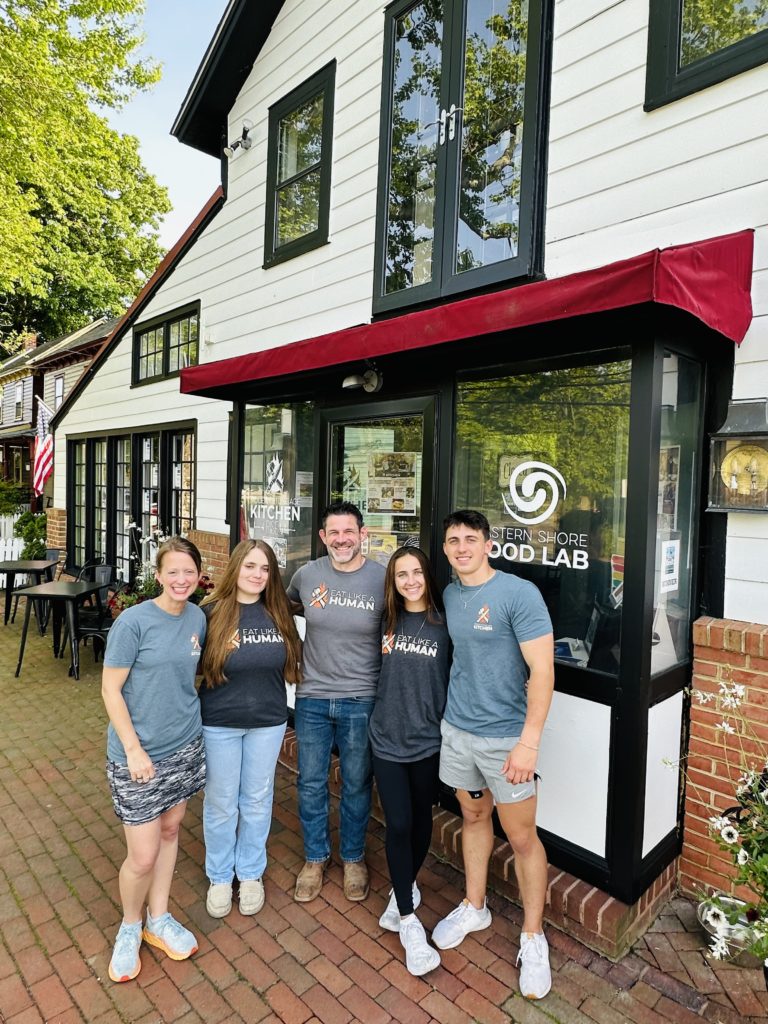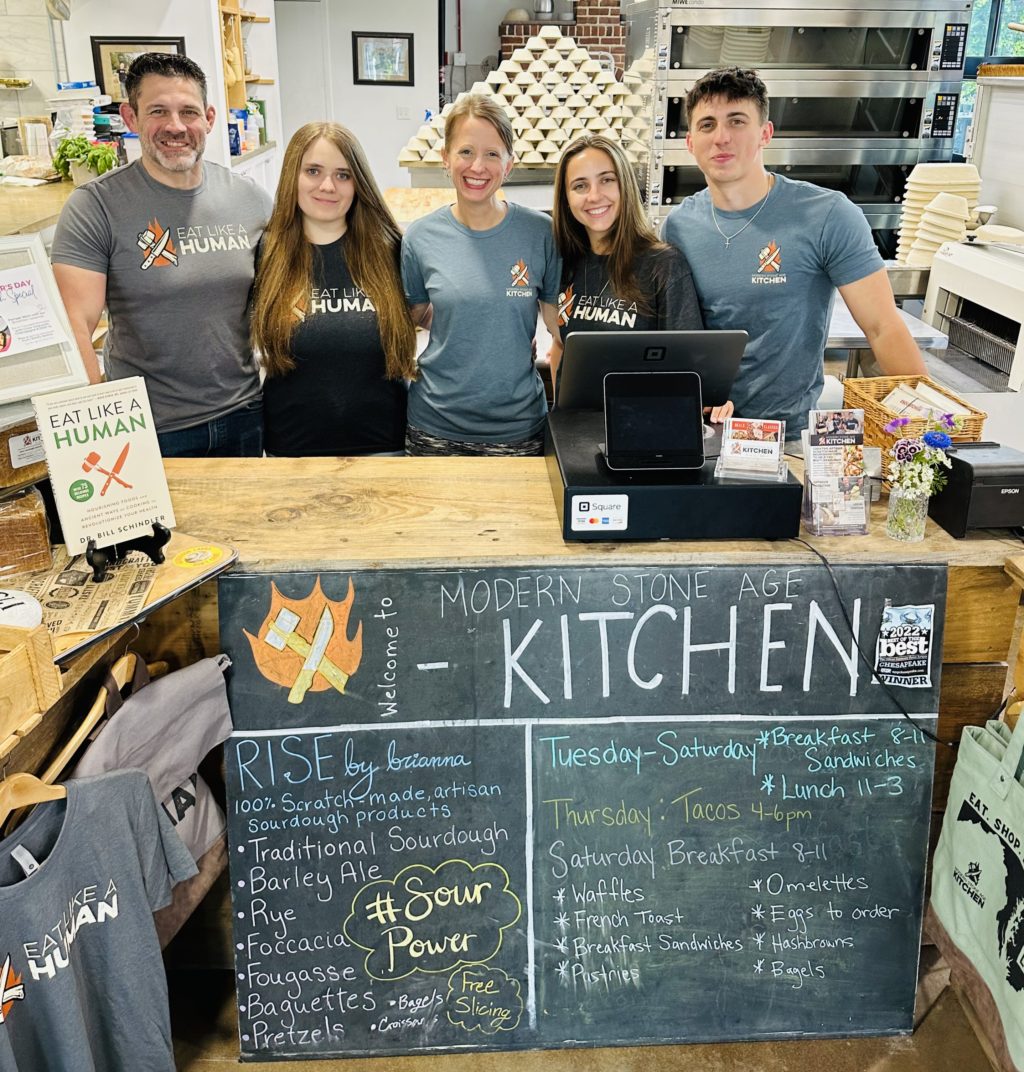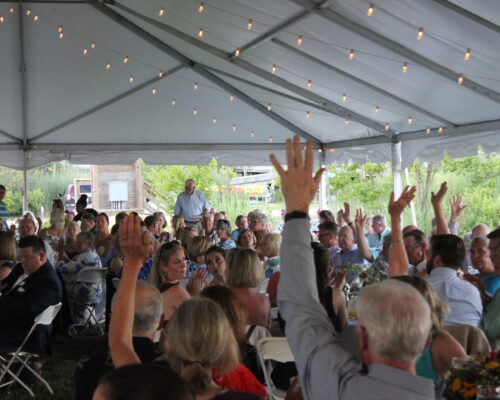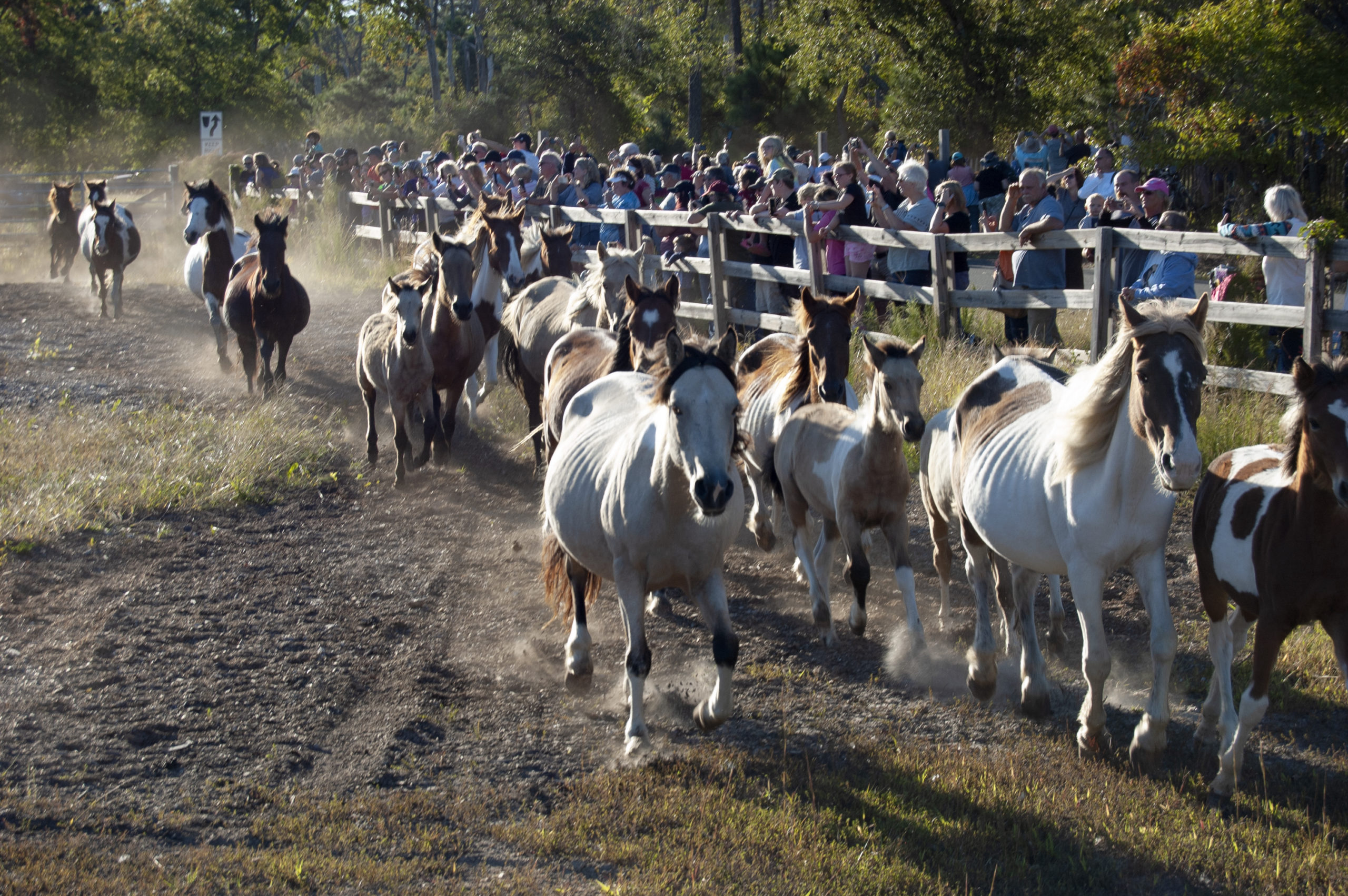Walk into Modern Stone Age Kitchen in Chestertown on Maryland’s Eastern Shore and connect to ancient civilizations around the world. A professor of archeology at Washington College for 15 years, food anthropologist Dr. Bill Schindler now brings his mission to Eat Like a Human to the community by adapting ancient approaches to food using modern technology. Pizza, bread, pasta, meats, cheeses, fermented veggies, and sweet treats…”everything is prepared from scratch, using traditional methods to make food nourishing and delicious,” says Schindler.
The Schindlers and their three teenagers are not your average business owners. You may already recognize Schindler from The Great Human Race, a 2016 National Geographic TV series where participants traversed the globe preparing food and shelter in the ways of indigenous people. Schindler is passionate about primitive skills, experimental archeology, hunting, fishing, and trapping. The Schindler family trips include traveling to Peru to learn to make fermented potatoes and drinking cow’s blood and milk with the Samburu warriors in Kenya. Now all three young adults are actively involved in their family’s business. Daughter Brianna, 19, mans the front of the house and makes sourdough; Billy, 17, is masterful in the kitchen and with the pizza oven; and Alyssa, 15, will be working the front of the house this summer.
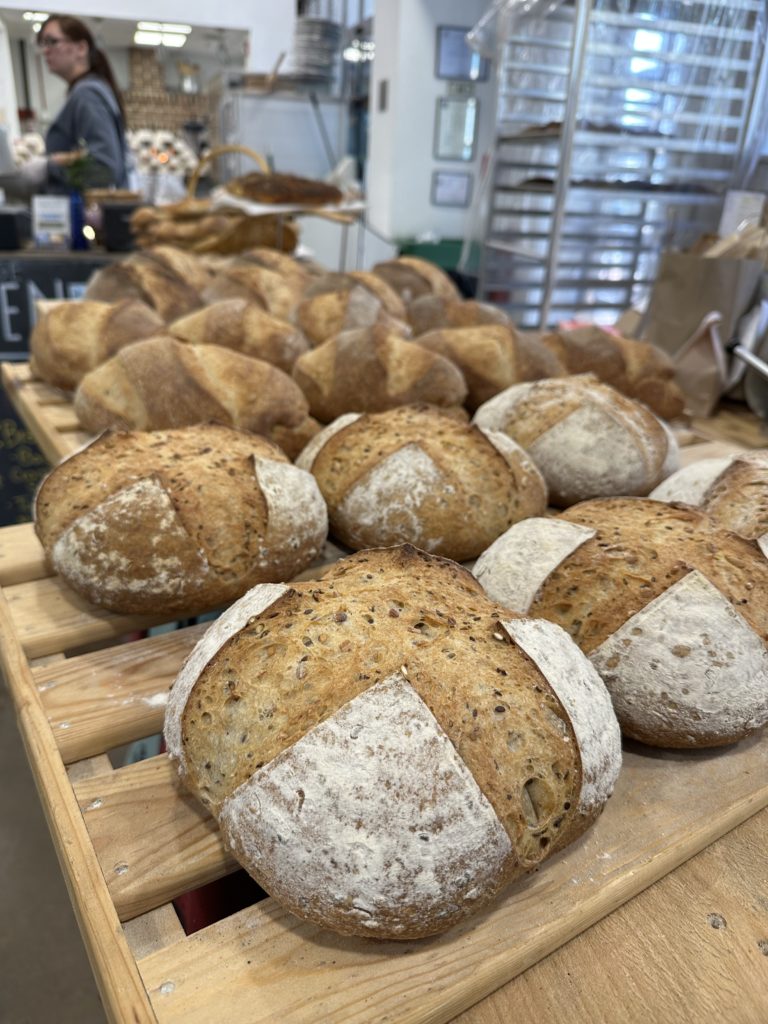
Modern Stone Age Kitchen’s storefront sourdough bakery and restaurant are frequented by customers near and far who stop in for Friday night made-from-scratch pizzas, sourdough breads and pretzels, and lunch time options like the “Whole Hog Hoagie” (all meats made in house using one pig from a local farm). But MSAK also offers monthly classes for those who want to learn more about ancient foodways, from creating sourdough and fermenting foods to how to butcher an animal and use every part of it.
During the pandemic, Brianna began baking several sourdough loaves each week for families and elderly members of the community—now she operates her sourdough business, Rise, out of the restaurant.
Visitors will also find The Eastern Shore Food Lab here at MSAK. The nonprofit research and teaching lab that Schindler founded when he worked at Washington College is used for community groups and schools to study ancestral food ways, including healthy food preparation and tasting classes.
Chrissy Kovnat came looking for ketogenic diet options after a concerning health diagnosis of a loved one. She has taken a four-day Eat Like a Human Intensive that included making sourdough mother, sourdough bread, fermented dairy, cheesemaking and fermented veggies, plus classes on Making the Most of Your Hunt and the Magic of Nixtamilization. “Eastern Shore Food Lab classes don’t just teach you how to follow steps and make one fermented dish, but rather teach you fundamentals so you can ferment large quantities of veggies, dairy, and bread,” she says.

The Eastern Shore Food Lab offers classes in a variety of techniques, including the popular sourdough bread and mozzarella cheese-making courses in their state-of-the-art teaching kitchen. Christina Schindler says class sizes are kept small for a reason. “We keep the class sizes small to ensure all students are engaged in hands-on learning. The classes have become so popular they are selling out quickly; our recent February Eat Like a Human Intensive class drew people from nine states.”
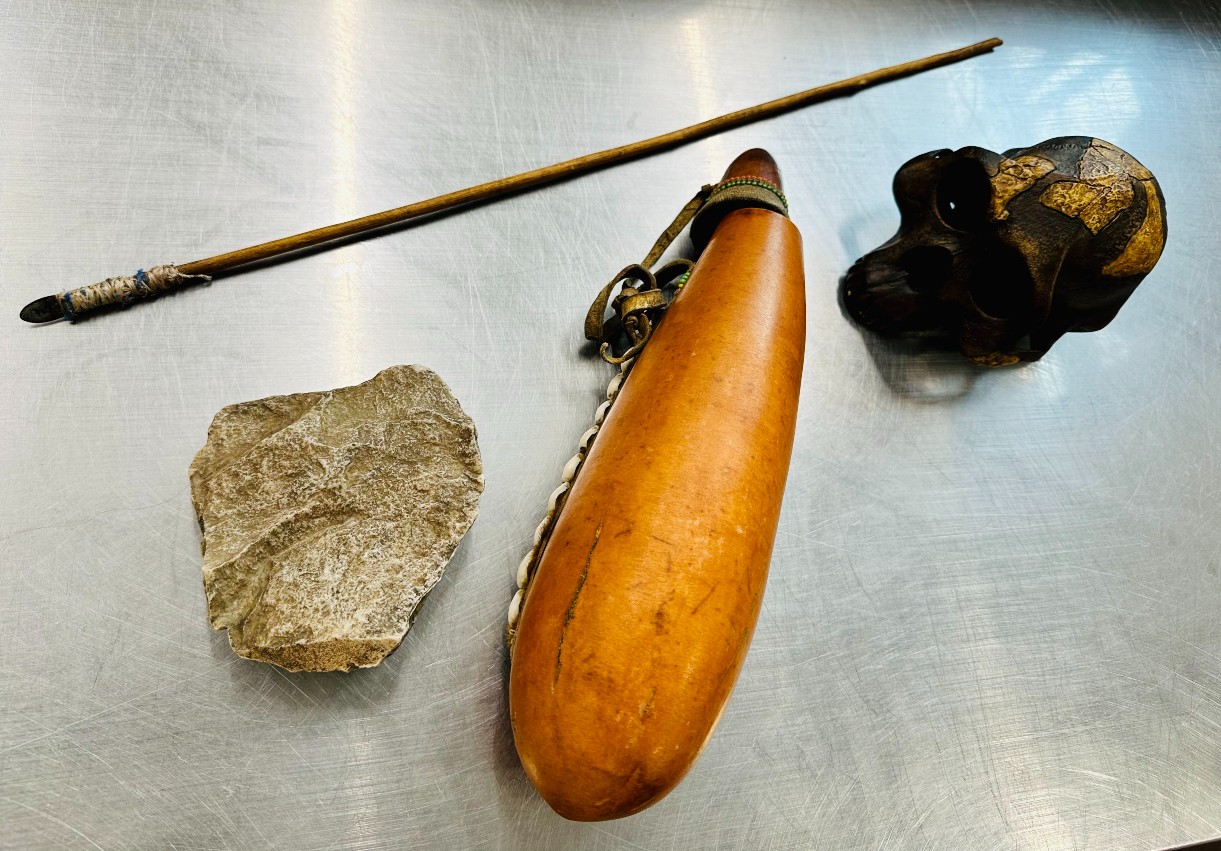
“I teach culinary classes in a local high school. Recent research on diet and mental health has captured my attention,” says teacher Leona Vrbanac. “I learned that preparing food the way our ancestors prepared it makes it exponentially more nutritious. In class, we all shared respect for lost knowledge of the past and a desire to learn to prepare food in the most nutritious ways. This translated into making sourdough based waffles and crusty bread with my high school students.”
Modern Stone Age Kitchen has received many accolades and awards. They have 12 Spoons awards for using real food ingredients, seven Best of the Best community choice awards for the Chesapeake area (including new restaurant, bakery, brunch, sandwich, and carry out categories), and Kent County’s Business of the Year award for 2023, and just won Bakery and Environmentally Friendly Business for Kent News.
Suzanne Hogan, a former educator, now a local food producer consultant in Carroll County, sings the praises of MSAK. “I’ve learned so much more about nutrition-as-prescription diets and the power of nutrient-dense foods, but there is so much more to know. For the first time in my life, I felt like I found my food tribe: people who understand the connections to history, family, health, and our planet that cooking provides.”
Whether you come to Chestertown for the Tall Ships Downrigging Weekend, Tea Party Celebration, or perhaps a visit to Washington College, let your stomach guide you to Modern Stone Age Kitchen and the Eastern Shore Food Lab.
